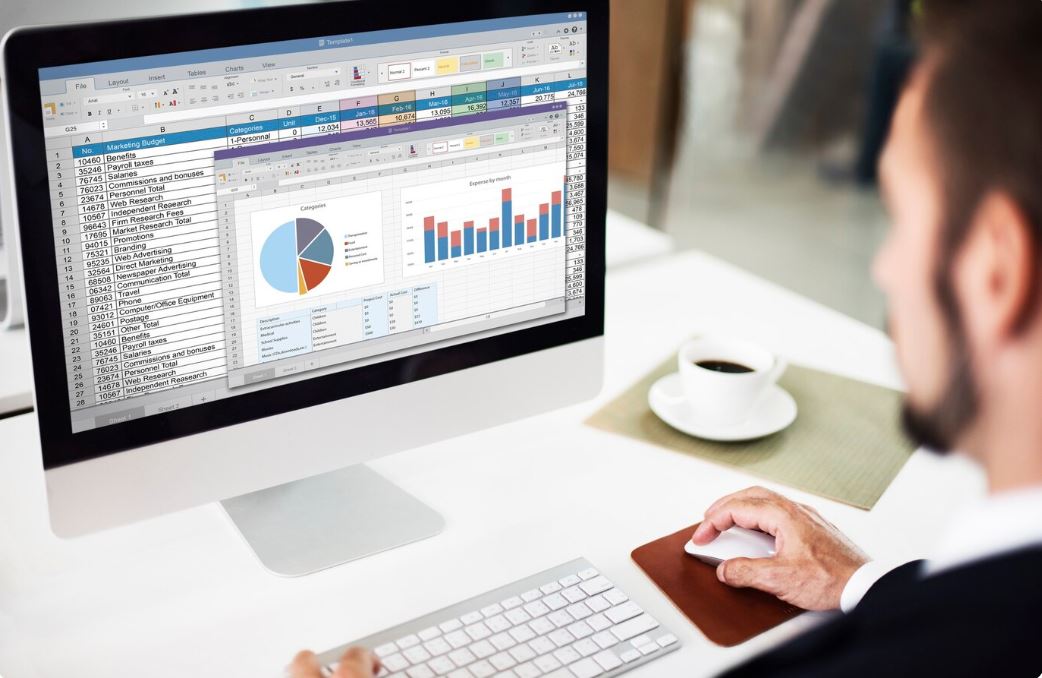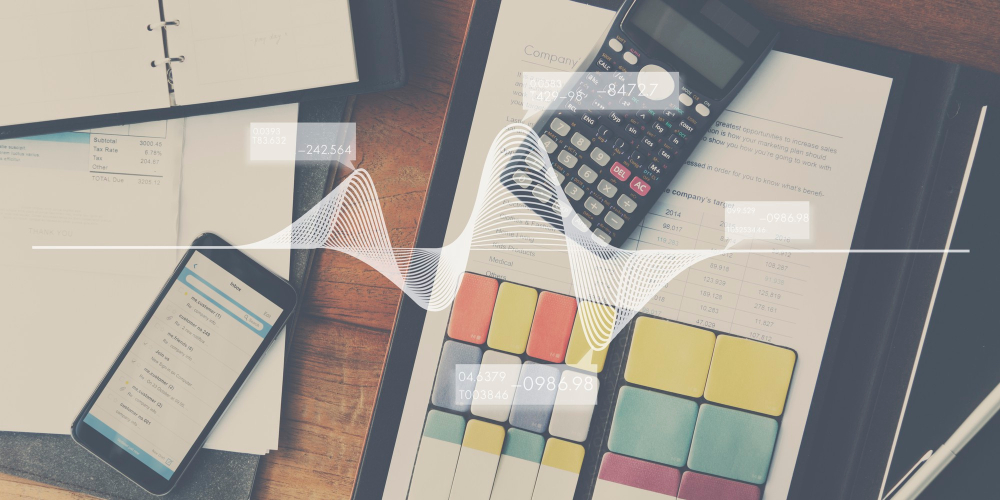Exploring Accounting Software: A Comprehensive Guide

Introduction to Accounting Software
Alright, let’s dive in. Accounting software – sounds fancy, right? It’s basically a digital tool helping businesses keep track of their financial transactions. Think of it as a smart assistant that handles everything from recording sales and expenses to generating reports about your business health.
– It streamlines financial management, making it easier to stay on top of your books.
– No more wrestling with complex spreadsheets or endless paper trails.
– Saves time, reduces errors, and lets you focus more on growing your business.
Whether you’re a small startup or a bustling enterprise, accounting software can be a game-changer. It takes away the headache of manual accounting and brings clarity to your financial operations, all with a few clicks. How cool is that?
Core Functions of Accounting Software

Accounting software has become an essential tool for businesses of all sizes. Its core functions are what differentiate it from simply using a set of spreadsheets. Let’s delve into some of these key functions.
Financial Reporting and Analysis
Financial reporting and analysis are at the heart of any accounting system. Think of these functions as the GPS for your business’s financial journey. Good accounting software provides detailed reports that give a clear picture of your financial health.
– Balance Sheets: Display your assets, liabilities, and shareholder equity to offer insights into your company’s net worth.
– Income Statements: Show your revenue and expenses over a specific period, allowing you to understand profitability.
– Cash Flow Statements: Offer a perspective on how cash enters and exits your business, crucial for maintaining solvency.
These reports empower you to make informed decisions based on current data, rather than speculation. Many accounting solutions also offer customizable dashboards, so you can get insights at a glance or dive deep as needed.
Invoicing and Billing
Say goodbye to paper invoices cluttering up your office. With accounting software, invoicing becomes a breeze. Automated billing saves time and reduces errors, allowing you to focus on what matters most: growing your business. Here’s how invoicing and billing features make life simpler:
– Automated Invoicing: Create recurring invoices with a few clicks, ensuring you get paid promptly.
– Templates: Use customizable templates for professional-looking invoices that reflect your brand.
– Payment Tracking: Track which invoices have been paid and which ones are outstanding, helping you follow up on late payments efficiently.
Some advanced systems also integrate with payment gateways, allowing your clients to pay straight from the invoice. This not only enhances convenience but also improves cash flow.
Payroll Management
Handling payroll manually can be a nightmare. Payroll management modules in accounting software simplify this process, ensuring accurate and timely employee payments. Here’s what you can generally expect:
– Automated Calculations: Calculate gross pay, taxes, and deductions automatically.
– Compliance: Ensure your payroll is compliant with local laws and regulations, mitigating the risk of penalties.
– Direct Deposit: Facilitate direct deposit, meaning employees get paid faster and manage their earnings more conveniently.
From setting up salary structures to figuring out the complexities of benefits and withholding, accounting software takes a load off your plate. This automation not only saves time but also eliminates the kinds of errors that can cost you in the long run.
Benefits of Using Accounting Software

Besides the fancy features, what makes accounting software worth the investment? Oh baby, let me tell you, the benefits are substantial. Let’s explore them.
Increased Efficiency and Accuracy
Running a business comes with a million and one tasks, and time is always of the essence. Accounting software increases efficiency by automating mundane tasks, allowing you to focus on what really matters.
– Data Entry: Automated data entry keeps mistakes at bay, ensuring your financial records are consistently accurate.
– Reconcile Accounts: Seamless bank reconciliations mean less time fact-checking, and more faith in your financial reports.
– Audit Trails: Keep detailed logs of financial transactions, making auditing smoother and less stressful.
In the world of finance, accuracy is king. Accounting software reduces human error, helping prevent costly mistakes that could impact your company’s financial standing.
Time and Cost Savings
It’s not just efficiency we’re after – it’s also about saving those precious hours and hard-earned dollars. It may seem like a big up-front expense, but the truth is, accounting software pays for itself over time.
– Reduced Manual Labor: Automation splits your workload and assists your staff, possibly allowing you to downsize or reallocate resources.
– Faster Processing: Speed up processes like invoicing and reconciliation, leading to quicker decision-making and better cash flow.
– Less Reliance on Third-parties: Reduce the need for dedicated accountants or bookkeepers, as many tasks become DIY-friendly with the right software.
Let’s face it. Anything that can make life easier while pinching pennies is pretty much a win-win in the business world.
Enhanced Data Security
In today’s digital age, security is not just important – it’s non-negotiable. Accounting software helps keep your sensitive data under lock and key.
– Advanced Encryption: Protect all financial transactions with advanced encryption techniques, safeguarding against data breaches.
– User Access Controls: Set permissions to dictate who can access what information within the system.
– Regular Backups: Most software solutions offer automatic backups and cloud storage, securing your data against loss in case of hardware failures.
With stories of data breaches becoming more frequent, the peace of mind that comes with robust security features is invaluable. Plus, nobody wants their financial information leaked – it’s a fast track to chaos.
In summary, accounting software isn’t just an optional luxury anymore. It’s a fundamental part of modern business strategy. From robust financial analysis to streamlined payroll management, the core features and benefits of accounting software make it an indispensable tool for achieving effective financial management. Being efficient, safe, and budget-friendly? Now, that sounds like a package anyone would want to unwrap!
Popular Accounting Software Solutions
When it comes to managing the financial aspects of a business, having the right accounting software can make all the difference. With a wide array of features designed to streamline your financial processes, these tools can save time, reduce errors, and help you gain clearer insights into your financial health. Let’s dive into some of the most popular accounting software solutions available today.
Zoho
Zoho is a name that pops up quite often in the world of business tools, and their accounting software, Zoho Books, is no exception. It’s particularly well-suited for small to medium-sized businesses looking for a comprehensive yet easy-to-use solution. One of Zoho Books’ most appealing features is its ability to automate repetitive tasks, like billing and reporting, which can save small business owners a ton of time and headaches.
– Integration Friendly: Zoho Books integrates smoothly with other Zoho applications as well as third-party tools, making it quite flexible if you’ve already got a preferred lineup of business apps.
– Multi-Language and Multi-Currency: If you’re operating in international markets, Zoho Books supports multiple languages and currencies, allowing for smooth global operations.
– User-Friendly Interface: With its intuitive design, even those who aren’t accounting-savvy can maneuver through Zoho Books with ease.
– Pricing: They offer tiered pricing plans, starting with a basic package that suits most small businesses and scaling up to accommodate more complex needs as your business grows.
FreshBooks
FreshBooks is another fantastic option, especially for freelancers and small business owners who need an affordable yet robust solution to manage their finances. Originally designed with simplicity in mind, FreshBooks melds modern design with essential accounting functionalities.
– Time Tracking: One standout feature is robust time tracking that’s particularly useful for service-based businesses and freelancers who bill clients by the hour.
– Invoicing: FreshBooks is a dream for invoice management. You can create professional-grade invoices in a snap, customize them, and even automate recurring billing.
– Expense Management: Snap a photo of a receipt, and FreshBooks will handle the rest. This makes tracking expenses on the go incredibly simple.
– Customer Support: FreshBooks provides excellent customer support, often receiving high praise for their responsiveness and effectiveness.
– Pricing: It offers a variety of pricing plans based on the number of billable clients, which means you pay for what you need without over-committing financially.
QuickBooks
QuickBooks by Intuit has been a dominant player in the account software market for quite some time, and for good reasons. It is a powerhouse accounting solution capable of handling the needs of both small and large businesses.
– Comprehensive Features: QuickBooks offers everything from inventory management to payroll services, making it a one-stop-shop for many businesses.
– Cloud-Based and Local: There are both cloud-based and local versions available, providing flexibility depending on whether you prioritize accessibility or need a more isolated system.
– Scalability: As your business grows, QuickBooks can grow with you. The variety and depth of its features mean that switching software due to business size isn’t a concern.
– Community and Resources: QuickBooks also boasts a large community and numerous resources, which can be an asset when you need guidance or want to learn more about maximizing the software’s capabilities.
– Pricing: While not the cheapest option on the market, the extensive features and capabilities justify QuickBooks’ price point, offering various plans tailored to different business sizes and needs.
Selecting the Right Accounting Software for Your Business

Choosing accounting software is not a one-size-fits-all venture. The right choice will depend on your specific business needs, your budget, and how comfortable you are with technology. Here’s a breakdown to guide you in selecting the perfect fit.
Assessing Business Needs
Before diving into the myriad of accounting software options, take a step back and evaluate what you truly need from your accounting solution. Here are a few questions to ponder:
– Size of Your Business: Are you a freelancer, a small shop, or do you manage a rapidly growing business? The complexity of your financial operations usually grows with business size, and so should your software capabilities.
– Nature of Operations: Do you provide services, sell products, or a mix of both? Service-based businesses may prioritize time tracking and billing features, while product-based businesses might need robust inventory management.
– Current Pain Points: Identify what your current setup lacks. Is invoicing a nightmare? Are you spending too much time on manual data entry? Pinpointing these can guide you toward a solution that alleviates these issues effectively.
– Future Growth: Think about where your business is headed. Opt for software that will not only meet your needs today but will also grow with you. This helps avoid the hassle of switching software as your needs evolve.
Comparing Features and Pricing
Once you’re clear on your needs, compare different software packages regarding what they offer versus their cost. Some tips for this stage include:
– Feature List: Curate a feature wish list that covers both must-haves and nice-to-haves. Align this with what each software offers to see which ones tick the most boxes.
– Pricing Structure: Different software has different pricing models. Factor in whether you prefer a subscription-based model with monthly payments or a one-time purchase. Consider how the cost changes as your needs grow, such as adding more users or accessing advanced features.
– Trial and Error: Take advantage of free trials. They give you a better sense of how the software fits into your daily operations and if its touted benefits align with your real-world experience.
– Long-Term Cost: Don’t just focus on the short-term cost. Consider long-term expenses, including potential fees for adding users, switching plans, or accessing premium support.
Considering User Experience and Support
No matter how feature-rich a software may be, if it’s a nightmare to use or you’re stuck when problems arise, it can quickly become a setback rather than an asset.
– Interface and Ease of Use: Spend time exploring the software’s user interface. It should be intuitive and straightforward. Remember, the goal is to save time, not add layers of unnecessary complexity.
– Customer Support: Evaluate the support options available. Do they offer 24/7 support? Is it through a chatbot, live chat, email, or phone? User reviews can be insightful here—they often highlight real experiences, giving you a sense of the support quality.
– Community and Knowledge Base: Some software options have robust communities or detailed documentation and tutorials that can help you navigate any issues you may encounter.
– Update and Improvement Cycle: Research how often the company updates its software. Regular updates are generally indicative of a company committed to improving its product in response to user feedback and technological advancements.
Selecting the right accounting software might seem daunting at first, but by systematically evaluating your business needs, comparing features and costs, and ensuring a positive user experience, you can find a solution tailored to help your business thrive. Investing time upfront to choose wisely can save you from future headaches, freeing you to focus on what really matters: growing your business.
Conclusion on the Importance of Accounting Software
In wrapping up, accounting software is a game-changer for businesses big and small. It takes the messy paperwork off your desk and brings financial clarity to your fingertips. This software not only ensures accuracy but also saves you buckets of time. Think of it as your financial guru that never goes on vacation.
Key benefits include:
– Quick and precise financial reporting
– Seamless integration with other business tools
– Real-time financial insights
– Simplified tax compliance
In short, investing in good accounting software is like hiring a reliable employee who’s always working in the background to make sure your numbers add up perfectly. Whether you’re managing a growing enterprise or a cozy startup, having a robust accounting solution in place will keep your finances in tip-top shape, allowing you to focus on what truly matters—growing your business.



